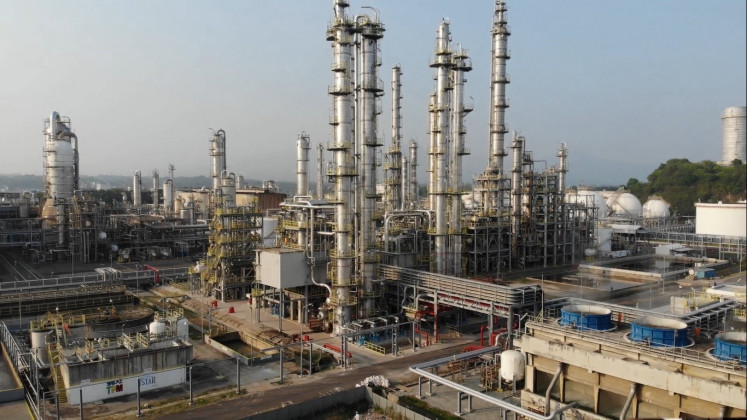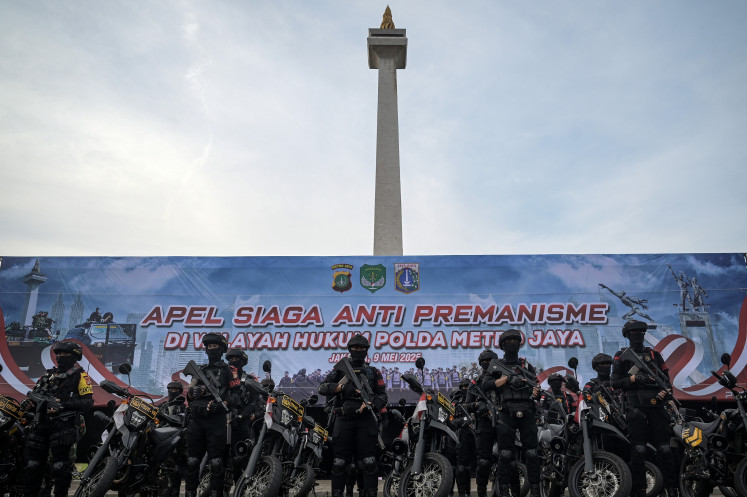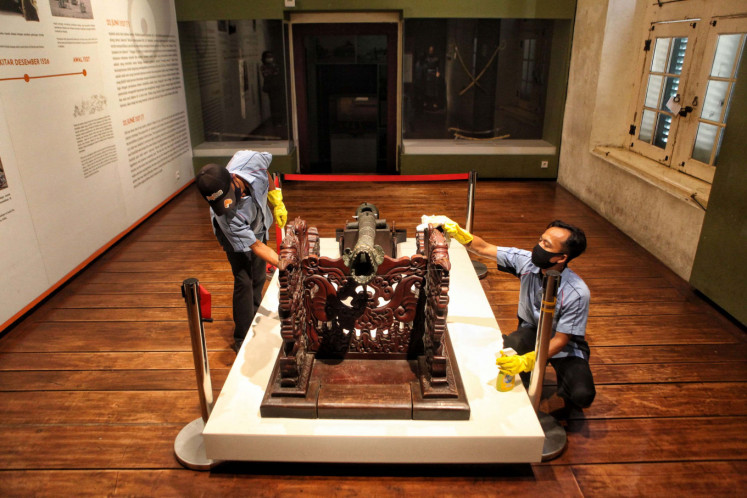Commentary: ‘Natural disasters’ is the Republic of Indonesia’s middle name
Indonesia rings out 2018 with another humanitarian tragedy: a deadly and destructive tsunami after the eruption of Mount Anak Krakatau in the Sunda Strait three days before Christmas
Change text size
Gift Premium Articles
to Anyone

I
ndonesia rings out 2018 with another humanitarian tragedy: a deadly and destructive tsunami after the eruption of Mount Anak Krakatau in the Sunda Strait three days before Christmas.
In terms of casualties, it is not of the same scale as the more than 200,000 deaths inflicted by the earthquake and tsunami in Aceh shortly after Christmas in 2004, but the series of natural calamities that befell Indonesia this year was the most frequent and widespread.
It would not be wrong to call 2018 the “Year of Natural Disasters” for Indonesia if only to remind us that we need to prepare better in the coming years. They are not going to get better.
In terms of human casualties, the largest disasters in 2018 include the earthquake on Lombok, West Nusa Tenggara, in August (564 deaths), the earthquake, tsunami and liquefaction in Palu, Central Sulawesi, in September (2,100 deaths) and the tsunami last week that hit the western tip of Java and southern tip of
Sumatra (430 deaths).
Mount Agung in Bali continued to be active throughout the year after its first big eruption in December 2017, threatening Indonesia’s world-renowned tourist island. Thankfully, two international events, the Annual Meetings of the IMF-World Bank and the Our Ocean Conference, took place in October.
This year saw the addition of two terms to our natural disaster lexicon: “liquefaction” following the elimination of entire villages after the Palu earthquake, and “subsidence” following the incident in Surabaya this month. We can expect to come across these terms often in the coming years.
And we have regular deadly floods and landslides in various parts of the country, although to be fair to nature, human activities may have been the biggest contributors to these disasters.
One thing Indonesia does not get is typhoons, which often strike neighboring Philippines, but we should not completely write them off following rare mini-cyclones that hit Java this year.
Given this, maybe it’s time to embrace “Natural Disasters” as the Republic of Indonesia’s middle name. If that sounds too offensive, what about “Nature” for a middle name?
Nature has dealt the cards to Indonesia: Historically, geography, geology and topology make Indonesia prone to natural disasters. We are right at the center of the Pacific Ring of Fire. In the global discussions about climate change, Indonesian islands are listed among the first to disappear with constantly rising sea levels.
Nature can be cruel but there is no sense in getting angry. Our forefathers and foremothers lived with this reality for hundreds of years. We too have come to terms with it.
Lest we forget, the cards we’re dealt are not all that bad. Putting aside the disasters, we should be thankful to nature for dealing the cards we have.
Indonesia is endowed with abundant natural resources, both on land and underground, and we have not even exploited the riches of our vast territorial waters and the undersea. Few countries can brag about their rich natural resources.
Indonesia has one of the largest collections of biodiversity, and for now anyway, controls large swaths of tropical rainforests considered the earth’s lungs. Straddling the equator, Indonesia is blessed with fertile land and a friendly warm climate all year round.
Nature dispenses us with a large and diverse population, and in spite of modernity, the sense of community remains strong. This much is clear whenever disaster strikes, people in other parts quickly come to lend a hand in the spirit of gotong royong (mutual cooperation), a term very specific to Indonesia.
In kampungs in rural areas, gotong royong is still very much alive and kicking. When huge natural disasters strike, we see it put into practice at the local and national levels.
More than a nation, Indonesia is one large community of nations. It is hard to imagine how people would cope with disasters if Indonesia was broken into smaller states.
Nature also endows Indonesia with a strong sense of spiritualism, expressed through the various faiths practiced nationwide. Whether Islam, Christianity, Hinduism, Buddhism, Confucianism or the hundreds of home- grown faiths, they all teach us to live and be on friendly terms with nature. Our faiths help console people when calamities strike and help them quickly get back on their feet.
Modernity and technology clearly have their limitations when it comes to dealing with natural disasters. You simply cannot fight nature. We can predict where an earthquake will take place, but not when it will happen. We can only predict tsunamis less than an hour before they strike, and in the case of the Sunda Strait last week, the tsunami completely took us by surprise.
Nature gives the people in Indonesia the leaders we deserve. We have had seven presidents since independence in 1945, with each playing their part, good and bad, in building the nation and the country.
We may not be able to fight nature, but the right leaders can help mitigate natural disasters and when that fails, help the nation get through them, including the healing and reconstruction process.
As we ring in 2019, bear in mind that we have an opportunity to elect the leaders we deserve: leaders who can better prepare the nation in facing the next natural disaster. We can only pray that, at least, the elections in 2019 will not be disastrous.
______________________
The writer is a senior editor at the The Jakarta Post.









